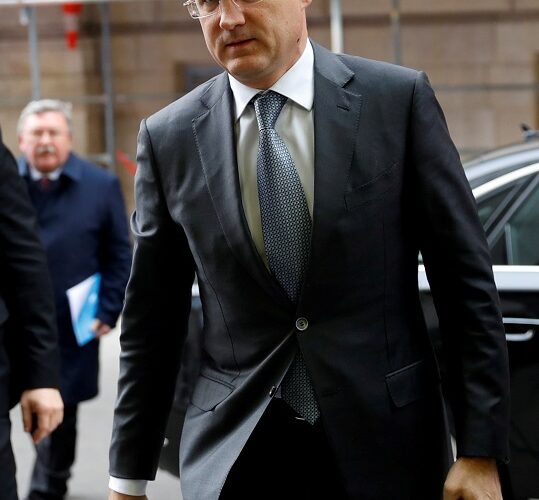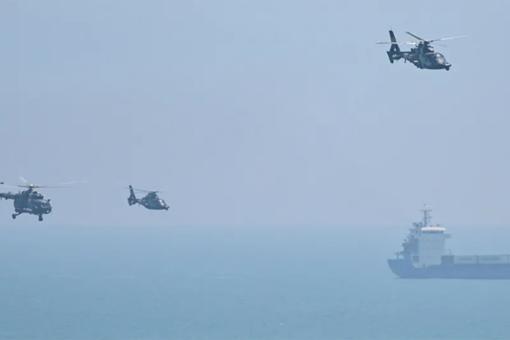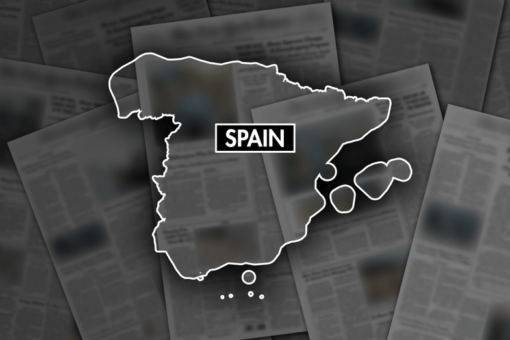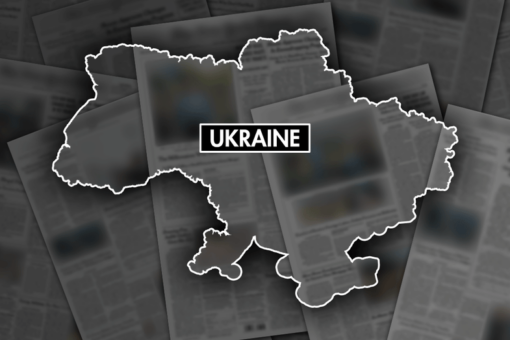Russia has blamed European leaders and their “short-sighted” policies as the continent suffers an energy crisis with record prices and the looming threat of possible invasion to make matters worse.
A global gas supply shortage has driven European energy bills to record levels over the past month. Europe receives around 30% of its natural gas imports from Russia, and leaders accused Gazprom, a Russian state-owned multinational energy company, of manipulating energy prices by limiting the supply.
Russia’s Deputy Prime Minister Alexander Novak fired back Saturday that Europe had only itself to blame.
FILE PHOTO: Russia’s Alexander Novak arrives at OPEC headquarters in Vienna, Austria December 5, 2019. REUTERS/Leonhard Foeger/File Photo
Novak accused “the short-sighted policy of the European Union and European Commission, which for many years deliberately moved away from long-term contracts” for the crisis.
RUSSIA PREPARING FALSE-FLAG OPERATION AS PRETEXT FOR UKRAINE INVASION, US WARNS
“Incorrect planning, short-term energy policy is a headache for European politicians, which they are trying to pass onto others,” Novak argued on Russian public television. He touted Russia’s supply and “huge resources” as he claimed that Russia had no trouble fulfilling all of its long-term supply contracts last year.
16 November 2021, Mecklenburg-Western Pomerania, Lubmin: View of pipe systems and shut-off devices at the gas receiving station of the Nord Stream 2 Baltic Sea pipeline. The Higher Administrative Court (OVG) of Mecklenburg-Western Pomerania is hearing a lawsuit filed by Deutsche Umwelthilfe (DUH) against Nord Stream 2. DUH had filed a lawsuit in the summer of 2020 for a review of the construction and operating permit for Nord Stream 2 by the Stralsund Mining Authority. (Photo by Stefan Sauer/picture alliance via Getty Images)
“Moreover, we delivered much more to Germany, to Turkey, to other countries that chose their volumes,” he explained.
CYBERATTACK TARGETS UKRAINE GOVERNMENT, WARNS CITIZENS TO ‘PREPARE FOR THE WORST’
Russia’s inactive Nord Stream 2 pipeline and cooler weather over the past few months sparked a jump in prices across Europe, but the price surge may have resulted from a number of factors, including a sharp drop in temperature while countries suffered low winds and some nuclear outages in France, increasing the reliance on natural gas power.
US Secretary of State Antony Blinken attends the first session of the NATO foreign ministers’ meeting in Riga, Latvia on November 30, 2021. – NATO foreign ministers meet in the Latvian capital to discuss how to counter a Russian military build-up on Ukraine’s border amid fears the Kremlin could be preparing to invade. (Photo by GINTS IVUSKANS/AFP via Getty Images)
The energy crisis highlights a vulnerability in Europe that some American politicians have feared Russia will casually exploit through its Nord Stream 2 pipeline as well as fears that Russia may be preparing to invade Ukraine.
Germany in November suspended approval for Nord Stream 2 until the company, registered in Switzerland, transferred assets and staffing budget to its German subsidiary.
NATO, RUSSIA SUMMIT WRAPS UP: ‘NOT AN EASY DISCUSSION,’ SAYS NATO CHIEF
But Germany had doubled its reliance on the pipeline prior to the suspension, putting it and other European countries in a tight spot heading into winter. It also shut down half of its remaining six nuclear reactors this month, despite arguments that nuclear energy can help Germany meet its climate targets for reducing greenhouse gas emissions.
The German government claimed that decommissioning all nuclear plants by 2022 and then phasing out the use of coal by 2030 won’t affect the country’s energy security.
Germany’s energy reliance on Russia came into sharp focus this past week as senators introduced competing bills to check Russia’s influence and military aggression against Ukraine. U.S. officials on Friday reported that Russia has planted operatives in Ukraine to complete a “false-flag” operation and provide the excuse for an invasion.
CLICK HERE TO GET THE FOX NEWS APP
Renewed conflict with Russia would see the energy crisis grow more severe.
The U.S. State Department has held talks with several international energy companies regarding contingency plans should Russia carry out an invasion of Ukraine, Reuters reported. State Department officials approached companies to ask where additional supplies might come from if needed, and the companies regrettably told the U.S. that global glass supplies remain tight.




